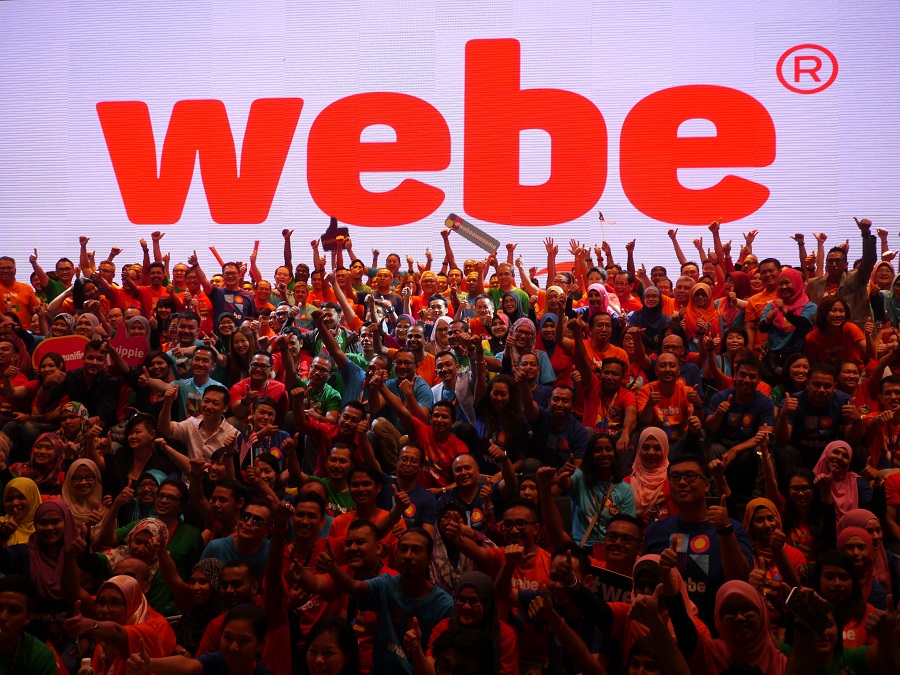After being dormant for far too long, Packet One is back and they’re entering the telco market with a brand new name: Webe. This rebranding is the result of P1 being acquired by TM back in 2014. The company has also signed a roaming partnership with Celcom earlier this year.
So what makes Webe different from the other telcos in the market? According to webe CEO CC Puan, the answer is the community. During the official launch of Webe, Puan emphasises the fact that Webe aims to build a community around their telco plans. One of the ways they are aiming to do this is through the power of crowdsoucing. Taking a page out of crowdsourcing services such as Kickstarter or Indiegogo, Webe has launched a crowdbacking website called webe Community. Unlike Kickstarter-like crowdfunding services, projects on the webe Community have all been fully funded and are just awaiting the input from the community members in order to be greenlit. Upon being greenlit, the people in charge of the project would be provided with the funds necessary to kickstart said project.
For now, there are seven projects that are currently available on the webe Community page, ranging from artistic projects to humanitarian aid. Webe has said that the website would soon be open to those interested in getting their projects greenlit.
As for the actual telco plans from Webe, the company has yet to reveal their plans just yet. Puan has said that webe’s services are currently in the final stages of user testing and is scheduled to go live during the middle of the year. For those who are currently utilising P1 services, Puan has said that existing P1 customers will be able to continue using its service until webe goes into commercial use.
While webe is still keeping mum on their telco plans, rumours have been swirling on the internet that the company intends to launch a postpaid plan that offers customers with 20GB of data for only RM 8 per month. Of course, where or not the rumours would turn out to be true remains to be seen. Should the rumours turn out to be true though, we can imagine that the other major telco players in Malaysia must be shifting uncomfortably in their seats.



